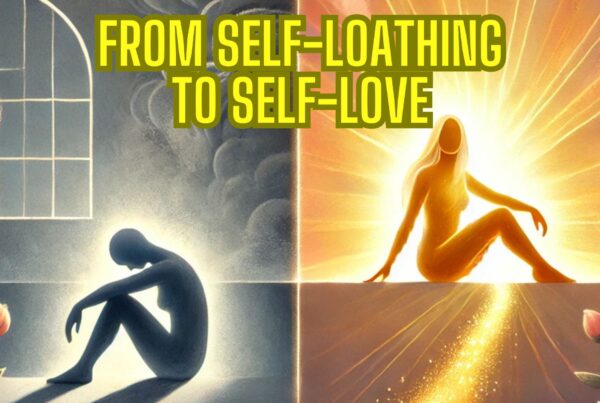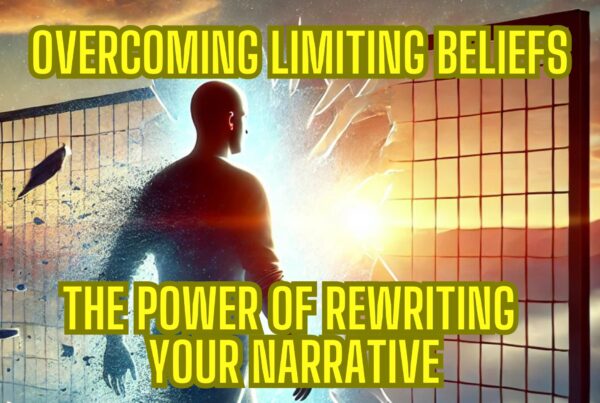Emotional Accountability: Take Control Of Your Feelings
We all know what it’s like to feel hurt, angry, or sad because of someone else’s actions. In those moments, it’s easy to point fingers and say, “You made me feel this way!” But what if that perspective isn’t entirely accurate? What if the emotions we experience are, in fact, our own responsibility? Emotional accountability is the practice of owning your feelings, recognising their source, and choosing a healthier response.
At its core, emotional accountability is about stepping out of a reactive mindset. Instead of blaming others, it invites us to take a closer look at what’s happening within. When we do this, we become more empowered, develop healthier relationships, and experience a greater sense of control over our lives. While it’s not always easy, learning how to take emotional responsibility can be one of the most transformative things we ever do.
What Is Emotional Accountability?
Emotional accountability means accepting that your feelings belong to you—no one else. While other people’s actions may trigger an emotional response, the way you interpret and respond is entirely within your control. This can feel like a radical shift at first, especially if you’ve been raised in a culture where blaming is the norm.
For example, if a friend cancels plans at the last minute, you might feel disappointed or even angry. But that feeling doesn’t actually come from the cancellation; it arises from your thoughts about the situation. Maybe you think, “They don’t care about me,” which leads to the feeling of hurt. Emotional accountability encourages you to challenge that thought. Is it true? Could there be another explanation? By exploring these questions, you can avoid emotional projection and approach the situation with clarity and fairness.
The Consequences of Emotional Projection
When we avoid taking responsibility for our feelings, we often fall into emotional projection—blaming others for how we feel. This might seem harmless at first, but it can lead to significant problems in our relationships and mental health.
Projection can create toxic dynamics, where resentment and blame become the default response to conflict. Relationships built on these patterns often become draining and filled with misunderstandings. Over time, this behaviour can also damage your self-esteem. Subconsciously, you may start believing that the world is full of people who are out to hurt you, which can leave you feeling isolated and powerless.
Practical Steps Towards Emotional Accountability
1. Recognise Your Triggers
The first step in becoming emotionally accountable is to recognise the moments when you’re tempted to blame someone else for your feelings. Pay attention to the language you use. Do you often say, “You made me feel…”? That’s usually a sign of emotional projection.
Instead, pause and ask yourself, “What’s really going on here? Why am I feeling this way?” This reflection can help you gain a deeper understanding of your emotional patterns and prevent reactive responses.
2. Use “I” Statements
Communication plays a big role in emotional accountability. Instead of blaming, express your feelings using “I” statements. For example:
- Blaming: “You never listen to me!”
- Accountable: “I feel unheard when our conversations get interrupted.”
This subtle shift in language can reduce defensiveness in conversations and encourage more open, honest dialogue.
3. Focus on Your Needs
Many conflicts arise because we expect others to read our minds. Emotional accountability involves being clear about your needs. If you’re feeling upset, instead of stewing in silence, communicate directly. “I’d really appreciate it if you could check in with me when you’re travelling,” is far more effective than waiting for someone to guess what you want.
The Role of Self-Care in Emotional Responsibility
Taking responsibility for your emotions doesn’t mean ignoring your feelings or toughing it out alone. Self-care is an essential part of this journey. It’s about nurturing your emotional well-being, so you can respond with clarity and compassion rather than reactivity.
Regular self-care can be as simple as getting enough rest, enjoying a hobby, or taking walks to clear your mind. It’s also about setting boundaries with those who consistently blame you for their feelings. Remember, emotional accountability goes both ways—you’re responsible for your emotions, but you’re not responsible for managing anyone else’s.
Learning to Apologise and Own Your Mistakes
Part of being emotionally accountable is recognising when your actions have hurt someone else and taking responsibility for it. This can be hard because it requires vulnerability. But a heartfelt apology, without excuses or deflections, can do wonders for healing relationships.
For example, if you snapped at a friend because you were stressed, owning it might sound like: “I’m sorry I was short with you earlier. I was feeling overwhelmed, but that’s no excuse for my behaviour.” Taking responsibility like this doesn’t diminish you. On the contrary, it shows strength, integrity, and a genuine desire to grow.
Why Emotional Accountability Is Empowering
Taking emotional accountability is not about blame or guilt—it’s about empowerment. When you recognise that your feelings are yours to manage, you reclaim control over your inner world. You’re no longer at the mercy of external events or other people’s actions.
This empowerment extends to your relationships. People who take responsibility for their emotions tend to have more authentic, meaningful connections. Instead of falling into destructive cycles of blame and defence, they foster a culture of trust, respect, and understanding.
Owning Your Feelings
Emotional accountability is a powerful tool for personal growth and relationship health. By learning to take responsibility for our feelings, we can break free from patterns of blame and projection, making space for greater emotional clarity and connection.
Ultimately, emotional accountability isn’t just a practice; it’s a path to deeper self-awareness and stronger, healthier relationships. And isn’t that something we all deserve?
FAQs
- What is emotional projection?
- Emotional projection is when we unconsciously blame someone else for our feelings to avoid dealing with our own emotional discomfort. It’s a defence mechanism that can create unhealthy relationship patterns if left unchecked.
- How can I tell if I’m being emotionally accountable?
- Start by observing your language. Are you using “I” statements and focusing on your own actions? Or are you blaming others for how you feel? Emotional accountability involves self-reflection, honest communication, and a willingness to grow.
- Why is emotional accountability important in relationships?
- It builds trust and reduces conflict. When both people take responsibility for their emotions, they can communicate more openly and compassionately. This creates a stronger, healthier connection.
Release Hypnosis Melbourne Hypnotherapy
Since 2015, Lawrence Akers has been working under the name Release Hypnosis offering Hypnotherapy and ACT based work to the people of Melbourne or an online service. Based on St Kilda Rd, Release Hypnosis is an easy and convenient location to get to and accessible by the ANZAC station train and tram stop. Release Hypnosis can help with a wide range of presenting issues, and I offer a free 30 minute no obligation discovery call for those who are unsure if hypnotherapy is the right way forward for them.
Book Your FREE 30 Minute Consultation With Release Hypnosis NOW!
You may also like to read:
Hypnotherapy: A Guide to Healing Through the Subconscious
The Neuroscience of Gratitude and Effects on the Brain: Unlocking Mental Resilience
Best Hypnotherapy Resources 2024: Release Hypnosis Top Blogs
What Is The Success Rate of Hypnosis?








